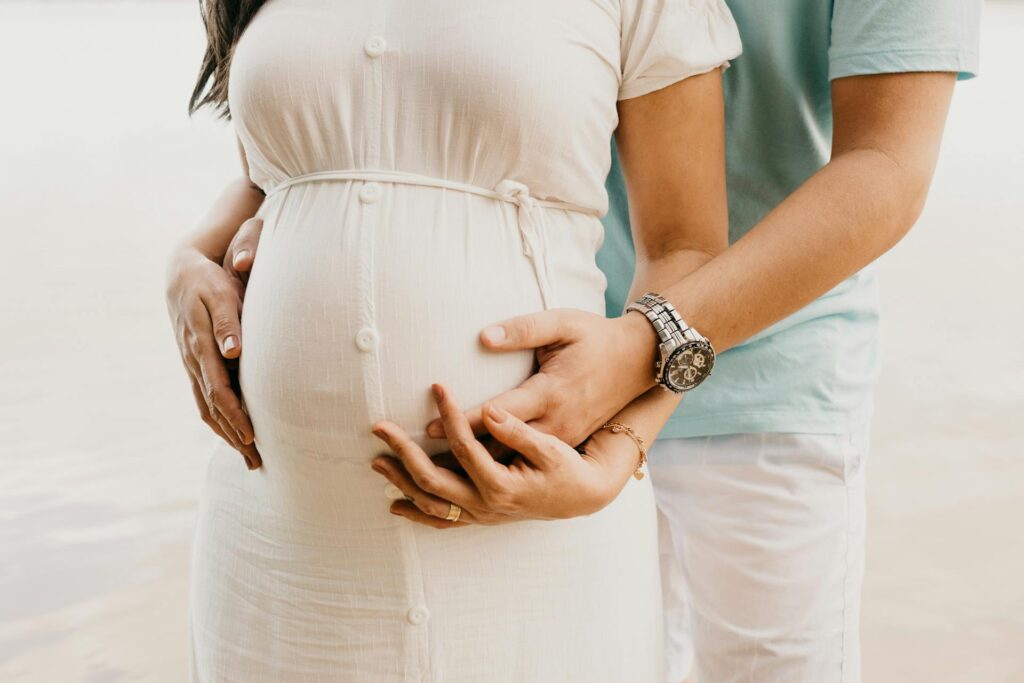The moment you suspect you might be pregnant, taking a pregnancy test can be filled with anticipation. One of the most common questions that come up is, “How soon will a pregnancy test read positive?” Understanding the right timing is important, as taking the test too early may show incorrect results. This guide will walk you through the factors that influence how soon a pregnancy test can detect pregnancy. Aiding you to approach this sensitive time with more clarity and confidence.
What Happens After Conception?
Before we dive into the details of pregnancy tests, it’s important to understand what happens after conception. Conception occurs when a sperm fertilizes an egg. However, pregnancy isn’t detectable immediately after this event. After fertilization, the egg must travel down the fallopian tube and implant itself into the uterine lining. This process typically takes about 6 to 10 days after ovulation. Once the egg is implanted in the uterus, your body begins producing human chorionic gonadotropin (HCG). HCG is the hormone that pregnancy tests are designed to detect. But just because your body has started producing HCG, doesn’t mean it’s immediately detectable in your urine or blood. The levels of HCG need time to build up to a detectable amount. This is why it is important to know when you can take a pregnancy test.
Types of Pregnancy Tests: Urine vs. Blood
There are two main types of pregnancy tests: urine tests and blood tests.
Urine Tests: These are the most common type of pregnancy test, and they can be purchased at pharmacies or grocery stores. Home tests work by detecting the HCG hormone in your urine. These tests are easy to use, and you can take them on the first day of your missed period. However, some sensitive tests claim to detect pregnancy a few days before your missed period.
Blood Tests: Blood tests can detect pregnancy in 6 to 8 days after ovulation which is faster than urine tests. There are two types of blood tests, a qualitative HCG test and a quantitative HCG test. Qualitative HCG test detects whether HCG is present, and Quantitative HCG test measures the amount of HCG in your blood. This is helpful in early pregnancy to track how quickly HCG levels are rising.
How Early Can a Pregnancy Test Show Positive?
The answer to this question depends on several factors, including the type of test you take and your hormone levels. Let’s examine these factors in more detail.
1. Early Detection Tests: Some home pregnancy tests are marketed as early detection tests. These kits claim to give results as early as 5 to 6 days before your missed period. These tests are more sensitive than regular tests, as they can detect lower levels of HCG. However, early detection tests aren’t always 100% reliable this early in the cycle. And taking the test too soon can result in a false negative.
2. Testing Around Your Missed Period: Most pregnancy tests will be accurate if taken the day after your missed period, which is 14 days after ovulation. By this point, HCG levels should rise enough to be detected by a home test. Testing at this stage gives you the highest chance of an accurate result.
3. Testing After a Few Days of a Missed Period: If you wait a few days after your missed period to test, the accuracy increases even further. HCG levels double approximately every 48 to 72 hours, waiting 2-3 days after a missed period provides a better chance. Especially if ovulation occurred later than expected.
What Factors Can Affect When a Pregnancy Test Reads Positive?
Several variables can influence when a pregnancy test will read positive:
1. Ovulation Timing: Ovulation timing can vary from woman to woman, even if you have a regular cycle. If you ovulate later than usual, implantation will occur later, and HCG levels will take longer to rise. This can delay how soon a pregnancy test will read positive.
2. Implantation Timing: Not only does ovulation matter, but so does implantation. Implantation typically occurs 6 to 10 days after ovulation, but it can be sooner or later. A late implantation means your body may take longer to produce detectable levels of HCG.
3. Sensitivity of the Test: Different pregnancy tests have different levels of sensitivity to HCG. Some tests detect HCG levels at 10 MIU/ML, others may only detect HCG at 25 MIU/mL or higher. Tests with higher sensitivity will be able to detect pregnancy sooner.
4. Concentration of Urine: For the most accurate result, it’s recommended to take a pregnancy test with your first-morning urine. This is because your urine is more concentrated in the morning, giving the test a better chance to detect HCG. Drinking a lot of water before taking a test can dilute your urine, potentially leading to a false negative.
Can You Get a False Negative?
It’s possible to get a false negative if you take the test too early. False negatives happen when the test doesn’t detect HCG even though you’re pregnant. If you test before HCG levels are detectable, you might get a negative result even if you’re pregnant. Also, if your urine isn’t concentrated enough, HCG levels may not be high enough for the test to detect. Some women naturally produce lower levels of HCG, especially in the very early stages of pregnancy.
If you get a negative result but still think you might be pregnant, wait a few days and take another test.
Can You Get a False Positive?
Although rare, false positives can happen. A false positive is when the test says you’re pregnant, but you’re not. HCG can remain in your system for a few weeks after a miscarriage or abortion, leading to a false positive. Also, if you’re undergoing fertility treatments or taking medications that contain HCG, it can result in a false positive. In rare cases, certain medical conditions like ovarian cysts or some cancers can cause elevated HCG levels. If you get a positive result but suspect it may be inaccurate, consult with your healthcare provider.
Conclusion
With the help of at-home pregnancy test kits, within 30 seconds you can see if you are pregnant or not. But understand, that a pregnancy test will read positive depending on several factors, ovulation timing, implantation, and sensitivity of the test used. The most reliable time to take a test is the first day of your missed period or later. If you’re unsure about the timing or the result of a test, wait a few days and test again. Or consult with a gynecologist, who can provide more clarity. With patience and a clear understanding of how pregnancy tests work. It can help ease some of the anticipation.



